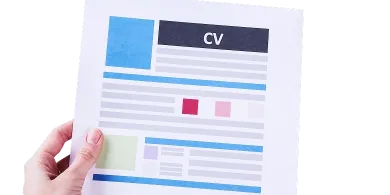Table of contents

The job market is loaded with applicants worldwide competing for the same open positions. So, how can you get noticed and stand out among your competitors? Lying on your resume or job application is one way to get seen – but it can also get fired.
You may not know that many employers have a written policy allowing them to fire employees who give false information on their resumes or job application.
This means that an employer is within its rights to terminate your employment for not telling the truth, and there is nothing you can do about it.
And how do companies find out that you have lied on your resume? Have you heard of ‘background checks’? Background checks are done more quickly and extensively today, thanks to the Internet.
You may be hired for a new position, and then once the background check is complete, you are fired because your new employer uncovered false information on your resume.
Background checks will quickly uncover a criminal past or dishonest embellishments on your resume. If you claimed a college degree or enhanced a previous job title or employment dates, there is a good chance this misinformation will be found in your background check.
Let’s look at the eight most common lies on resumes, keeping in mind that any one of these falsehoods can get you fired.
A common area to lie and ‘pad’ your information to get your dream job is education. You may try to impress a hiring manager with an inflated GPA or claim a degree that you don’t have. These are common lies on resumes that can quickly be confirmed or denied by contacting the appropriate college.
Many applicants will either enhance a previous position title or list what they think their title should have been. For instance, if you were an Assistant Manager in your last position and feel that you should have been the Manager because you did all the work, that’s fine.
But, if you exaggerate by listing your title as Manager, that’s incorrect. Or maybe the title your previous employer gave you was Client Relations Specialist, but you think the title is not appropriate and should be Customer Service Manager, so you list that on your resume. That’s also false.

It is easy to exaggerate your job duties by adding more higher-level tasks such as managing 12 branch locations instead of three (3) or coaching and training your co-workers when you occasionally give them advice.
The problem occurs when your new employer contacts your previous employer and asks about your job duties or puts you in a situation that you cannot handle. If you start calling in sick every time you are supposed to conduct an in-house training session because you fear speaking, it won’t take long for your new employer to find you out.
This area is the same as education. If you claim a certification that you don’t have, it’s lying. It is a lie if you list a certificate where you have taken the course but did not pass the exam.

All of us would like to be making more money, so why should it matter if you ‘beef up’ your last salary an extra $5,000? Because it’s false information. This question is most likely to be asked of your previous employer. The truth will come out, so why lie about it?
You probably have a gap in your employment somewhere that you want to cover up. So, you extend your employment dates to disguise the gap hoping that no one will notice. Again, this is easy to uncover in a quick telephone call to your previous employer. Why risk it?
Your resume, if applicable, should be filled with quantitative results, which is what hiring managers look for. However, truthful results are what you should put on your resume without inflating the numbers.
If you achieved a sales goal of 12%, but you want to impress your new employer by saying 25%, The more significant number will get you noticed. Yet, these numbers can be verified by your previous employer, and it will probably cost you the new job.
So, you speak a little Spanish, and you list on your resume that you are bilingual and proficient in English and Spanish. Or, you claim that you are experienced in PowerPoint. You land the job and are tasked to create a PowerPoint presentation for new clients, or you are asked to be an interpreter for Spanish-speaking clients.
Can you perform your duties? If not, that’s a legitimate reason to fire you. As your new employer checks back on your resume and sees that you lied about your skills and proficiency levels, it is just a cause to terminate you.
One central point to keep in mind when you lie on your resume is that it reflects your character. Employers want to hire honest people with integrity. Is it worth it to lie on your resume?
 Sandy James is an Interview Coach who has over 18 years of experience as a Human Resource Generalist. She coaches her clients for upcoming job interviews, emphasizing integrity and making the interview a team approach. She can be found on LinkedIn.
Sandy James is an Interview Coach who has over 18 years of experience as a Human Resource Generalist. She coaches her clients for upcoming job interviews, emphasizing integrity and making the interview a team approach. She can be found on LinkedIn.